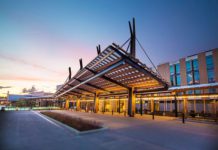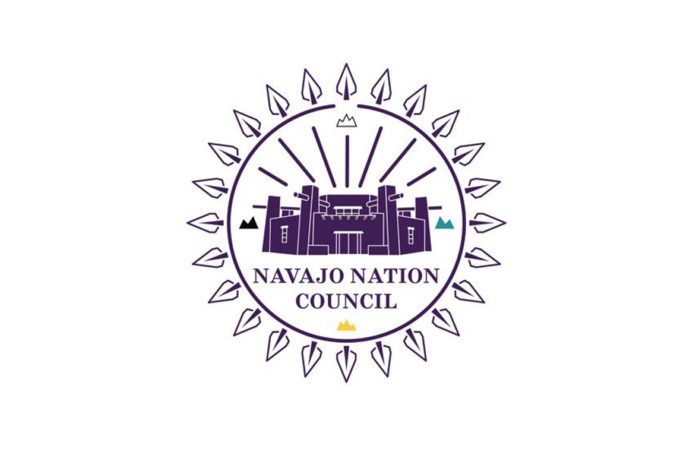WINDOW ROCK, AZ – The Naabik’íyáti’ Committee (NABI) of the 24th Navajo Nation Council passed Legislation No. 0209-21 that will allocate $68 million from Síhasin Funds to the Navajo Department of Water Resources (DWR) to complete 12 water connection projects for the eastern and northern agencies of the Navajo Nation. Council Delegate Amber Kanazbah Crotty sponsored the bill that was passed by a vote of 21 in favor and 0 opposed. The Sanostee, Newcomb, Two Grey Hills, Sheep Springs, Tohatchi, Mexican Springs, Standing Rock, Naschitti, Rock Springs/Tsayatoh, and Tóhajiilee Chapters were selected in New Mexico for these connection projects.
“We are at the final stages of bringing safe drinking water to our Navajo families who most need it,” said Crotty. “These connection projects will create additional jobs and provide miles of new water lines directly to the homes of elders, veterans, and our most vulnerable families. It is important during this pandemic that we fix the ongoing problem of high arsenic levels that were detected and our people have access to clean water moving forward.”
In the 2018 Consumer Confidence Report (CCR) prepared by the Navajo Tribal Utility Authority (NTUA), it stated that high arsenic concentration levels exist in the water supply of three Navajo chapters. Groundwater production is also declining due to aquifer depletion or well fatigue for five communities listed. According to the U.S. Environmental Protection Agency (EPA), prolonged exposure to elevated arsenic concentrations can lead to skin lesions, blood disorders, and an increased risk of cancer. It has also been associated with cardiovascular disease and diabetes.
“Most of the homes and businesses located in the eastern and northern portions of the Navajo Nation have a depleting groundwater supply that cannot meet the future needs of more than 43 Navajo chapters,” said Council Delegate Mark Freeland. “Water production is declining as many of our wells are at risk of being shut down and requiring maintenance, turning off running water for families in our communities. This $68 million infrastructure project will correct this problem so that future generations have access to clean drinking water.”
The communities of Sanostee, Two Grey Hills, and Newcomb, NM, have high arsenic levels in their water supply, which violates the Safe Drinking Water Act. Additionally, the Sheep Springs, Naschitti, Tohatchi, and Standing Rock Chapters that rely solely on groundwater wells are producing less water due to aquifer exhaustion or depletion.
“The Tóhajiilee Chapter is suffering from an acute water crisis where five of six wells have failed or been abandoned due to poor water quality and maintenance issues,” said Jamie Henio, Chairman of the Budget & Finance Committee. “Around 1,800 community members rely on this single well that produces corrosive, substandard quality water. We need to fix this growing problem immediately or our families will be without water in a rural area.”
Since 2016, the Tóhajiilee well has been shut off four times due to pump failure that has left the entire community, its schools, businesses, and health clinic without water for weeks. NTUA reported that the well-casing is also corroding and if it were to collapse, the Tóhajiilee Chapter will be without any water source for several months.
“This $68 million investment would provide over 14,600 people with access to safe, clean potable water,” said Speaker Seth Damon. “It is estimated that around 40 percent of Navajo households rely on hauling water to meet their daily needs, which must change. The council is working diligently to allocate funds to complete several major infrastructure projects, including miles of new water pipelines, tanks, and pumping stations. We commend Honorable Amber Kanazbah Crotty for her leadership in protecting the health of the Navajo people by addressing these high arsenic levels.”
Legislation No. 0209-21 proceeds to the Navajo Nation Council for approval and if passed, goes to Navajo Nation President Jonathan Nez for consideration or veto.















































